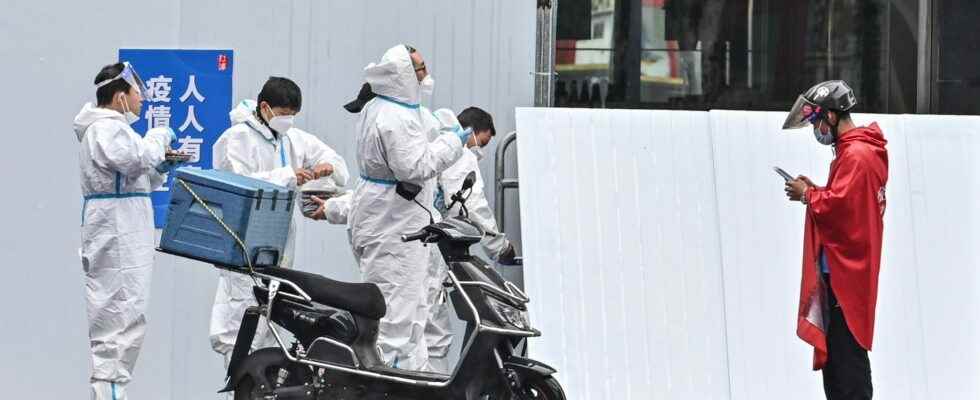China is releasing the pressure. A week after unprecedented demonstrations against the “zero Covid” policy, the National Health Commission (NHC), equivalent to the ministry, announced on Wednesday a general relaxation of health rules against Covid. According to the new guidelines unveiled “asymptomatic infected people and mild cases who can be isolated at home will generally be isolated” and the country will “further reduce the scope of nucleic acid tests and reduce the frequency”. From now on, they will only be carried out in “schools, hospitals, retirement homes and high-risk work centers”.
Another novelty, it will now be possible to travel from one Chinese province to another without having to present a negative PCR test of less than 48 hours, and no test will be required on arrival either. And it will no longer be necessary to display a green health code on your phone to access the majority of public buildings. China will also accelerate the vaccination of the elderly, its weak point which has previously prevented it from relaxing its health rules. The new instructions unveiled by the National Health Commission (NHC) will serve to “correct the significant problems currently encountered in the prevention and control of the pandemic”, explained the latter. The policy pursued so far “has aroused a strong response from the public”, acknowledged Li Bin, an expert from the NHC, at a press conference.
Chinese cities open up again
Already, at the beginning of the week, several Chinese cities had relaxed the rules. In Beijing, stores reopened this weekend and since Monday residents can again use public transport without presenting a negative PCR test less than 48 hours old. The city of Hangzhou, near Shanghai, has also announced that it will end large-scale PCR tests, except for schools and retirement homes. While in Zhengzhou, the city where the largest iPhone manufacturing plants in the world remain, the epicenter of the revolt, the requirement has been abolished almost everywhere. After the visit of the President of the European Council Charles Michel, the Chinese President Xi Jinping had himself recognized that the omicron variant, “less lethal than the delta version”, opened “the way to more flexibility in the restrictions”.
Immediately after the announcement of the easing of measures on Wednesday, travel searches on the Ctrip app for the Chinese New Year period surged, reaching a three-year high, according to online media The Paper.
Indeed, for nearly a week, many political statements have been in line with a relaxation of the implacable “zero covid” policy. In force for almost three years, it has upset the daily lives of the 1.4 billion Chinese, imposing on them repeated confinements, quarantines in the hospital and daily mandatory PCR tests. “We are happy to hear that the Chinese authorities are adjusting their current strategies and are really trying to calibrate the control measures for this virus now,” said Dr. Michael Ryan, WHO emergency manager, last Thursday. “It’s really important that governments listen to their people when people are hurting. We really want to see this adjustment happen and accelerate.”
Unprecedented demonstrations in the country
At the end of November, unprecedented demonstrations had emerged in the country. For the first time since the Tiananmen protests in 1989, thousands of Chinese took to the streets to express their dissatisfaction with the strict restrictions imposed by Beijing. Some protesters went so far as to openly criticize Xi Jinping’s government and the Chinese Communist Party.
The announcement comes hours after the official publication of new worrying figures for the world’s second largest economy: in November, China saw its exports and imports collapse, under the combined effect of its zero Covid policy and a demand sluggish.
